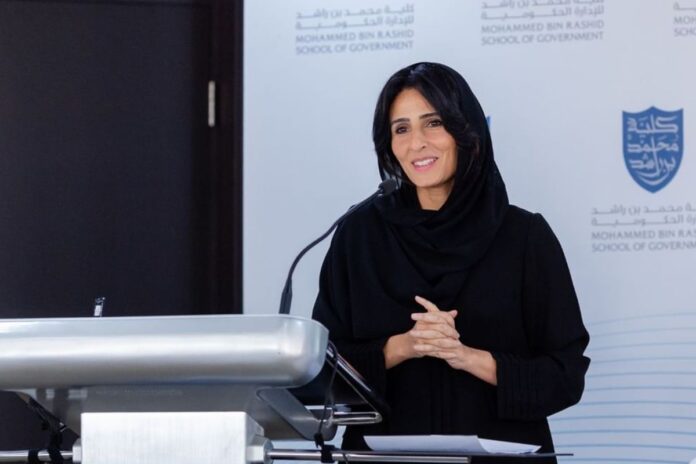The 17th Annual Scientific Conference kicked off today as part of a collaboration between the Mohammed bin Rashid School of Government and the Arab Society for Economic Research (ASFER) under the slogan “climate change and its implications on Arab economic development”.
The two-day event will run from 4th to 5th November and will witnesses the attendance and participation of government officials, former ministers, academics and policymakers from the Arab world.
Over 7 sessions, the conference discusses topics covering areas such as anticipating the future impact of climate change on sustainable Arab development, the future of water, energy, and food security, the green economy and sustainable economic development in the Arab region.
The first day of the conference also witnesses the launch of Seventh Arab Development Report: ‘Climate Change and Sustainable Development in the Arab States’, which was prepared by the Arab Planning Institute in Kuwait in cooperation with the National Planning Institute, and the Arab Society for Economic Research and the Organization of Arab Petroleum Exporting Countries (OAPEC).
Abdullah Ali bin Zayed Al-Falasi, Director General of the Human Resources Department of the Government of Dubai (DGHR), and Chairman of the Board of Trustees of the Mohammed bin Rashid School of Government, opened the activities of the first day, with a welcoming speech.
He said:
“I am pleased to welcome you to this conference, where we discuss with leaders from the Arab world policy proposals and ideas that can support decision-makers in the region to tackle issues related to climate change.”
He added:
“The conference comes at a time when the UAE is preparing to host the COP28, which is an opportunity to produce working papers, scientific research, applied studies, and specialized seminars and conferences that serve decision-makers in the Arab region to address pressing challenges and seize opportunities that can lead to a more sustainable future for the region and the world.”
The conference witnessed a presentation of the results of the “Arab Sustainable Development Goals Guide Report 2023”, presented by Lama Zakzak, a research associate at the Mohammed bin Rashid School of Government. The report showcased variation in the performance of countries in the region with regard to sustainable development goals and pointed to 3 positive trends throughout the region: education, clean energy, and life on land.
Dr Mahmoud Mohieldin, Chaiman of Arab Society for Economic Research, United Nations Climate Change High-Level Champion for Egypt, United Nations Special Envoy on Financing the 2030 Sustainable Development Agenda, said:
“Climate action is one of the world’s main threats.”
He said:
“The current global focus is to raise awareness on climate issues and develop scenarios to mitigate them. Scientists, researchers and specialists in the Arab region are motivated to understand how the challenges associated with climate change will impact Arab economies.”
He added:
“To confront climate action, developing countries must integrate climate action with other sustainable development goals. This should be done through a comprehensive and integrated approach aimed at mitigating poverty, creating job opportunities, and making water and energy sources available to all.”
The conference is held based in line with the Mohammed bin Rashid College of Government’s commitment to supporting government excellence in the UAE and the broader Arab world. Its support includes providing an integrated system of educational and training programmes, research and studies, documenting the UAE’s model and facilitating the sharing of knowledge between governmental entities in the UAE and among Arab countries.
News Source: Emirates News Agency
